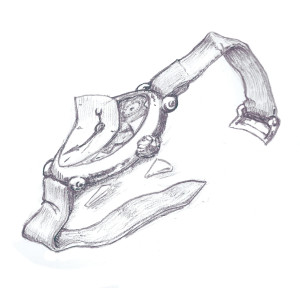D. K. McCutchen is a Senior Lecturer for the UMass College of Natural Sciences. Lack of poetic DNA led to tale of low adventure & high science titled The Whale Road (Random House, NZ; Blake, UK), which earned a Pushcart nomination & a Kiriyama Prize Notable Book award. In a literary attempt to save the world, she’s now writing mostly scientifically accurate, sometimes erotic, gender-bender-post-apocalyptic speculative-fiction. The series begins with Jellyfish Dreaming—finalist for a Massachusetts Cultural Council Artist Fellowship. She lives on the Deerfield River with two brilliant daughters and a Kiwi, who isn’t green, but is fuzzy.
“Jellyfish Dreaming”, an excerpt from the above-mentioned novel of the same name, vies with Giselle Leeb’s “Ape Songs” for the weirdest dystopian future depicted in LCRW 33— a world of deserts and acidic oceans where humans and jellyfish are among the only things left alive, humans live off the jellyfish and are starting to become jellyfish themselves—it is also, disturbingly, the most plausible. For that reason I think this makes an excellent capstone in my series of contributor interviews (read them all here)
Settle in, friends. This one’s good.



